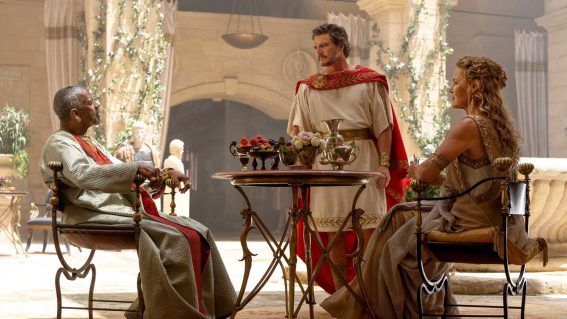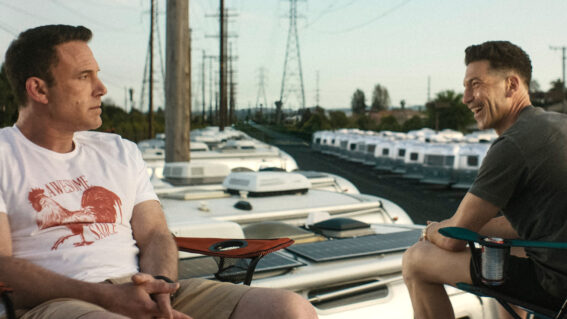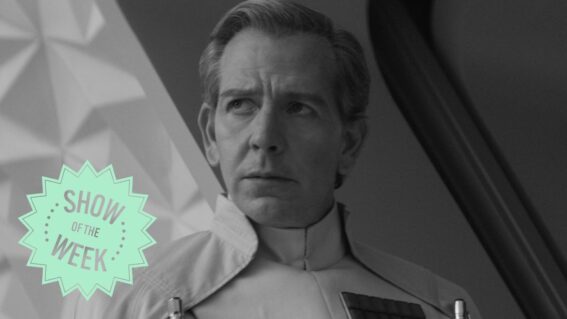Poker Face is a gloriously retro murder-mystery road trip with a modern hero

We’re all drowning in content—so it’s time to highlight the best. In her column, published every Friday, critic Clarisse Loughrey recommends a new show to watch. This week: “howcatchem” crime series Poker Face finally arrives on UK screens. Clarisse says it’s better late than never.
With a lonesome mew drawn from a banjo’s string, Charlie Cale (Natasha Lyonne) enters the scene. She’s a drifter, a fugitive. She’s a bounty of curls tucked under a trucker hat. She’s a modern-day Cassandra—cursed not with the ability to perceive a future that no one believes, but a lie that no one can see. And, in Rian Johnson’s ten-part series Poker Face, she’s a Columbo for the internet age, a detective fluent in post-modern irony. She looks fresh from the seventies, but with access to TikTok. She’s a counter-culture radical too weary to start the revolution.
When we first meet Charlie, she’s living an undisturbed, humble life as a cocktail waitress in a Nevada casino. But, when her best friend Natalie (Dascha Polanco) is murdered, it becomes clear that Charlie’s purposefully living beneath her means. She has an uncanny ability to read faces. That makes her a “human lie detector”. She’s here because the casino’s founder, Sterling Frost (an actor I won’t spoil), caught her winning one too many games of cards. Her immediate sense that something’s off about Natalie’s case puts her at odds with the boss’s son (Adrien Brody). So Charlie soon finds herself on the run, ping-ponging from state to state, with death inexplicably snapping at her heels.
Charlie, in her own, maladroit way, forms the bridge between the television trends of then and now. The medium’s dogged pursuit to prove its artistic maturity has led our detectives to become monotone and riddled with self-loathing, while our murders are now nightmarish extractions from the deepest pits of our subconscious. With Johnson having already kicked off a mini-murder mystery revival in cinemas with 2019’s Knives Out, he’s now brought that same energy to the small screen, switching out Agatha Christie vibes for the “howcatchem” structure that rose to popularity in the seventies and eighties—in which we know the identity of the killer from the start, meaning the question is not of who but of how.
It’s more flattering to audiences. Normally, the detective maintains a somewhat privileged position over their audience. They’re the keeper of secret knowledge. There’s an implicit (and sometimes explicit) touch of haughtiness to their grand, climactic rundown of the crime. But here, detective and viewer are in cahoots—two pairs of eyes fixed on the ultimate goal of justice. Lyonne makes for a natural successor to Columbo and Peter Falk, not merely because she’s also Jewish and from New York, but because they both rigorously chew on their own thoughts, considering both their flavour and their nutrition before moving on to the next.
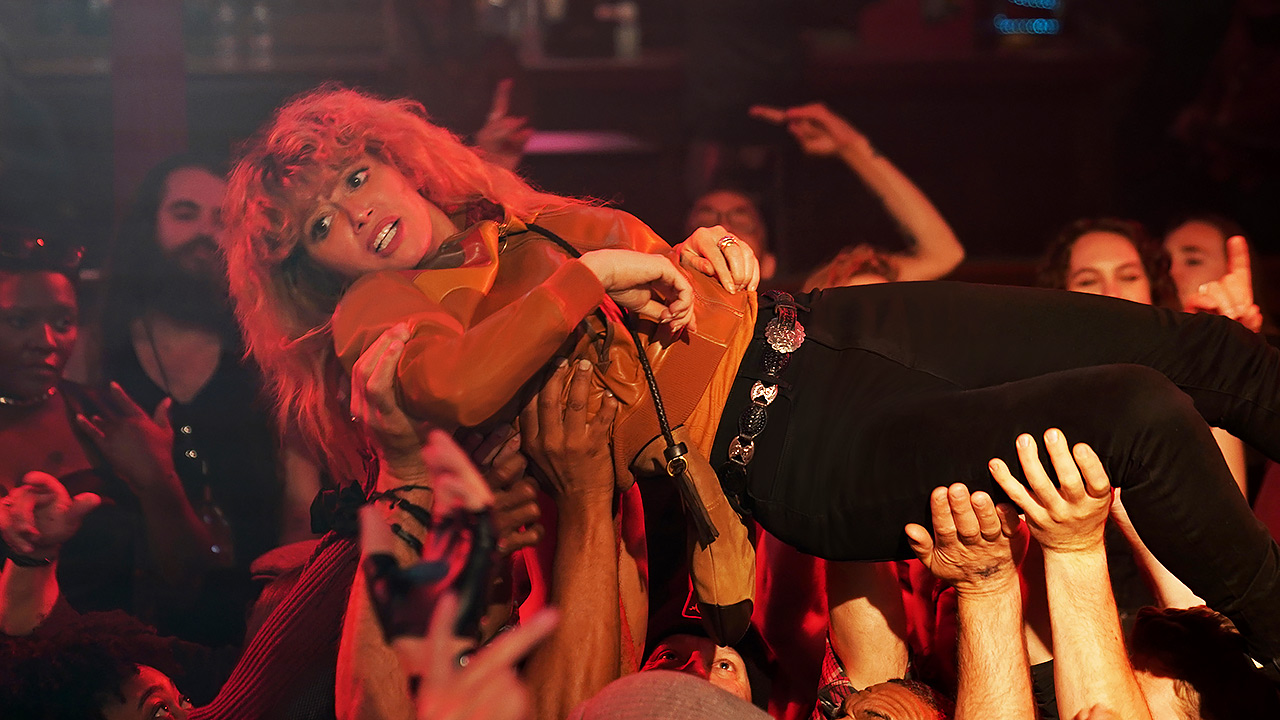
The first two episodes of Poker Face are helmed by Johnson himself, with Nora and Lilla Zuckerman serving as series showrunners. Lyonne, Iain B MacDonald, Tiffany Johnson, Lucky McKee, Ben Sinclair, and Janicza Bravo take on the rest of the directing duties. All of these talents are unified, however, in Johnson’s career-spanning vision—to retrace old traditions with a modern hand. Lyonne’s episode, for example, which sees the founders of a visual effects company battle to possess the evidence of a terrible crime, seems to borrow much of its mood and aesthetics from Brian de Palma’s 1981 paranoid classic Blow Out.
Poker Face is being released by Sky this week in perhaps the worst manner possible—months after it first debuted, and with every episode dropping at once. Don’t binge this series. Its storytelling is deliberately cyclical, with Charlie repeatedly finding herself entangled in a new, self-contained crime, which she must alert the authorities of without exposing her own location.
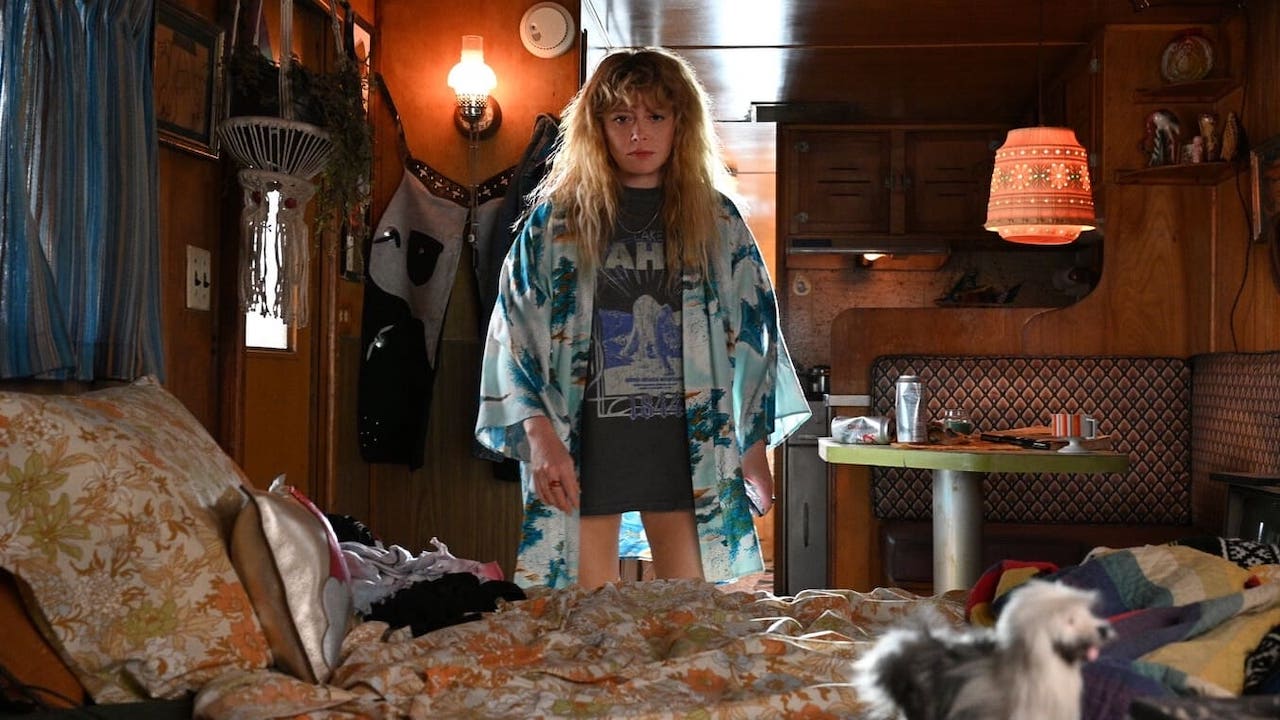
There are so many famous faces on display here—from Hong Chau to Chloë Sevigny to Lil Rel Howery, alongside the ingenious coupling of Judith Light and S. Epatha Merkerson as former hippies who aren’t as they seem. These performances should be delightful, little treats and not a bucket load of indulgence.
And though Poker Face isn’t the type of show that deals in “spoilers”, per se, there’s so much cleverness packed into every line and look that it’s a shame to experience it in relative isolation. But that’s the reality of TV in the UK these days, isn’t it? Sometimes later really has to be better than never.







